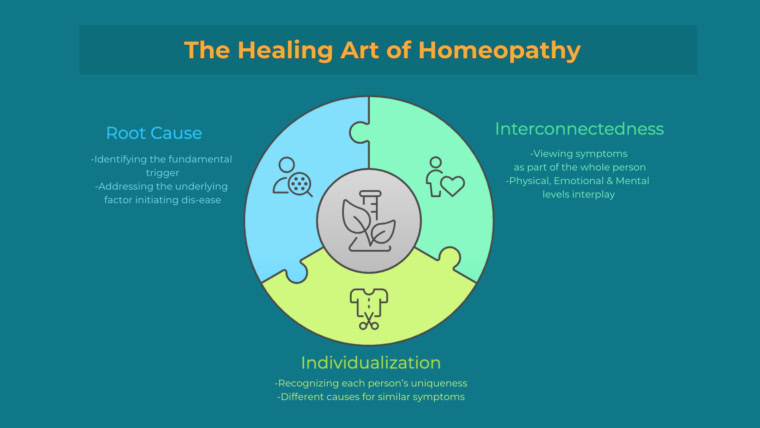You get a headache. Is it because of dehydration? Stress? Poor sleep? Latent inflammation? An inherited tendency toward depression? Trauma? Or something else entirely?
When we reach for quick relief without asking what truly caused the headache, what are we actually solving? Can short-term symptom suppression lead to long-term health?
Complex Interconnectedness or Isolated Parts?
Even cutting-edge science still struggles to understand many fundamental processes in our bodies, and even more so in our minds.
To put this in perspective: until the 1990s, we didn’t even recognize the existence of the microbiome. Now, we know it contains 200 times more genes than the human genome. Those five pounds of bacteria in your gut don’t just digest food, they regulate hormones, affect immunity, and influence your mood, motivation, and mental health.
Studies show how gut health and emotional well-being are interlinked. Stress, anxiety, and childhood trauma can disrupt your microbiome. Likewise, gut imbalances can affect how your brain responds to stress or depression. Your emotions affect your body, and your body affects your emotions, they are not separate systems.
For instance, gut bacteria help regulate estrogen, which then impacts everything from the reproductive system to the cardiovascular system, skin, and brain. Hormones and microbes constantly communicate, it’s a two-way street.
This points to an essential truth: our body is a network of deeply interconnected systems. Addressing one part in isolation often misses the point.
Modern fields like psychoneuroimmunology show how behavior, the nervous system, and the immune system are tightly linked, yet we are only beginning to understand how they work together.
Despite all this knowledge, we still often treat symptoms as isolated problems. We split systems apart and seek specialists for each, often forgetting the bigger picture.
Are Our Symptoms a Mistake?
When you begin to grasp the complexity and intelligence of the human body, you see symptoms differently.
Your body runs countless processes in harmony, your heart beats rhythmically, cells receive nutrients on time, and gut bacteria live in a delicate balance. Even the most advanced AI or machines can’t replicate this system, let alone consciousness, emotion, or thought.
So, would a system this intelligent create a migraine randomly?
Unlikely.
Your defense system, the internal intelligence that protects and maintains your health, creates symptoms for a reason. They are not mistakes. They are adaptations.
A symptom is often the best possible response to an internal imbalance. If your system chooses a headache to maintain homeostasis, and you suppress it with medication, what happens?
You’re interrupting your body’s attempt to restore balance. The root issue remains unresolved, and the body will have to find another way to cope. Often, when we keep suppressing symptoms, the imbalance moves deeper, eventually affecting more vital organs.
The more we silence symptoms, the more we weaken the defense system and risk more serious problems.
What Does Homeopathy Do Differently?
Classical homeopathy works with the body’s defense system. It doesn’t fight the symptoms, it supports the process, helping the body regain balance at the root cause.
Instead of blocking the symptom, it strengthens the system so that the symptom is no longer needed. The goal is long-term healing, not just momentary relief.
Does Avoidance Solve Problems?
Let’s be honest: we all want to avoid discomfort, physical or emotional. But when comfort becomes our top priority, we pay for it later.
Avoiding a difficult conversation might spare us momentary discomfort, but it often builds deeper conflict. Ignoring pollution today gives us toxic air and water tomorrow. The same mindset that disconnects us from nature also disconnects us from our own bodies.
We want quick fixes. Fast relief. Easy solutions. But just like our immune system builds strength through challenge, so does our character and resilience.
Taking a pill to make pain disappear without understanding the cause mirrors how we often treat emotional discomfort, we numb, avoid, distract. But this avoidance adds up. It builds chronic stress, poor immunity, and eventually, disease.
To truly heal, we must stop avoiding symptoms and start listening to them. They are not the enemy. They are messages.
Chronic Illness and the Cost of Suppression
Our approach to health, focused on short-term comfort, is fueling a silent epidemic.
Globally, 1 in 3 adults suffers from multiple chronic conditions. Even before COVID-19, 3 out of 5 global deaths were due to chronic diseases like cardiovascular disease, cancer, lung disease, or diabetes.
The World Health Organization has declared depression the leading cause of ill-health worldwide, a fact deeply consistent with what homeopathy observes about modern life and inner imbalance.
What Do We Need Most?
We need a change in perspective.
To think that anxiety has nothing to do with digestion, or that external pollution doesn’t affect our personal health, is to misunderstand the ecosystem of life, both inside and outside of us.
Everything is connected.
If we start seeing pain and discomfort as pieces of a larger whole, we can begin to truly heal, not just patch over problems.
Classical homeopathy takes into account your physical, emotional, and mental state. That’s why two people with arthritis might need two completely different treatments. Their imbalances are unique, and so is their healing path.
If we use homeopathy just like conventional medicine, as a “pill for a problem”, we may get some relief. But we miss its deeper potential.
Used with understanding, homeopathy offers long-term transformation: relief from pain, emotional clarity, and the freedom to live more fully.
Misconceptions That Block Healing
Let’s recap some of the most common myths that keep us from fully benefiting from homeopathy:
-
“We can measure everything needed to understand health.”
Not true. Our biology is too complex. Even without identifying every mechanism, homeopathy can work by strengthening the defense system and restoring balance. -
“Each body part functions separately.”
False. Research, and lived experience, show we are integrated systems where body, mind, and emotion influence each other. -
“Symptoms are just problems to remove.”
Symptoms are intelligent signals. They guide us toward what needs healing. If we suppress them, we miss their message, and often, the real solution.
The Future of Healing?
Nobel Prize-winning virologist Luc Montagnier titled one of his final lectures:
“Homeopathy: The Future of Science and Medicine.”
It just might be. Homeopathy addresses not only chronic disease and antibiotic resistance, but also deep emotional patterns, trauma, and environmental imbalance.
To unlock its full potential, we need to see health differently, not as the absence of symptoms, but as the presence of balance, integration, and resilience.
Our body is not broken. It’s talking.
The question is: Are we listening?



